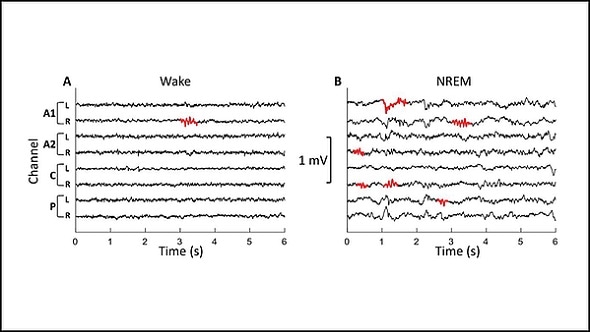People may count sheep when they cannot sleep, but when they do finally drift off their brains generate the same type of brain wave as their ovine counterparts, according to new research published in eNeuro. Monitoring how a sheep’s sleep changes during the progression of a brain disease may one day translate to sleep-based diagnosis in humans.

Sleep is essential for consolidating memories and maintaining brain health. During sleep, a specific brain wave occurs – the sleep spindle. They are associated with converting short-term memories into long-term memories. Spindles may also predict brain health.
Schneider et al. recorded the brain activity in sheep over one day and two nights using electroencephalography. The sheep generated sleep spindles falling within the frequency range typical of human sleep spindles. Like humans, each sheep maintained their own pattern of spindles that stayed consistent during both nights of sleep. During sleep, spindles occur all over the brain. However, a unique type of sleep spindle appeared in specific brain areas while the sheep were awake. These spindles may be connected to thinking and remembering during the day. Because they possess similar brain structure, sleep patterns, and even brain disorders, sheep are an excellent model for studying human sleep and brain disorders.
Source:
Journal reference:
Schneider, W.T., et al. (2020) Characterising Sleep Spindles in Sheep. eNeuro. doi.org/10.1523/ENEURO.0410-19.2020.